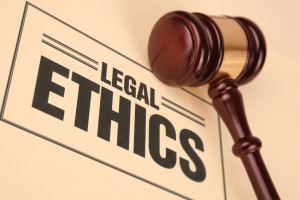I hope everyone made the most of the long weekend. Friday’s questions are here. The answers follow today’s Honor Roll.

Honor Roll
- Matthew Anderson, Pratt Vreeland Kennelly & White
- Evan Barquist, Montroll Backus & Oettinger
- Alberto Bernabe, Professor, John Marshall Law School
- Beth DeBernardi, Administrative Law Judge, VT Dept. of Labor
- Erin Gilmore, Ryan Smith & Carbine
- Robert Grundstein, Esq.
- Jeanne Kennedy, JB Kennedy Associates, Blogger’s Mom
- John Leddy, McNeil Leddy & Sheahan
- Pam Loginsky, Washington Association of Prosecuting Attorneys
- Jack McCullough, Project Director, Vermont Legal Aid Mental Health Law Project
- Hal Miller, First American
- Jim Runcie, Ouimette & Runcie
- Jay Spitzen, Esq.
- Jonathan Teller-Elsberg, Hershenson. Carter, Scott & McGee
- Thomas Wilkinson, Jr., Cozen O’Connor
- Zachary York, Child Support Specialist II, Office of Child Support
Answers
Question 1
Can a lawyer accept compensation from someone other than the client?
- A. Yes, but only in insurance defense matters.
- B. Yes, but only if the client is indigent.
- C. Yes, but the rule permitting it also discourages it.
- D. Yes, if the client gives informed consent, the payor doesn’t interfere with the lawyer-client relationship, and information relating to the representation of the client is not disclosed to the payor except as authorized by the rule on client confidences. V.R.Pr.C. 1.8(f).
Question 2
Consider the following:
- must be in a writing that is signed by the client.
- cannot be used for representing a defendant in a criminal case.
- cannot be based on securing a divorce.
Here, we’re talking about:
- A. Contingent Fees. V.R.Pr.C. 1.5(c).
- B. Flat Fees
- C. An agreement to limit the scope of a representation
- D. All the Above
Question 3
A lawyer called me with an inquiry. I listened, then responded “the first question is whether the new matter is the same as or substantially related to the old matter.”
Given my response, the lawyer called to discuss the rule on:
- A. file retention
- B. fees/trust account management
- C. communication with a represented person.
- D. a potential conflict of interest. V.R.Pr.C. 1.9(a).
Question 4
Here’s a sentence that is in the comment to one of the rules on candor. Your task is to fill in the blank.
“_________________ partially true but misleading statements or omissions that are the equivalent of affirmative false statements.”
- A. A lawyer does not violate this rule by making . . .
- B. Misrepresentations can also occur by. V.R.Pr.C. 4.1, Comment [1].
- C. Negotiations necessarily include . . .
- D. According to my dad, Lawyers excel at making . . .
Question 5
The things we do for our clients!!
Sydney Carton was a brilliant lawyer who struggled with alcohol & depression. His most famous client was Darnay.
While not explicitly clear from the historical record, I’m pretty sure that Darnay filed a disciplinary complaint against Carton. In it, he alleged that Carton failed to provide him with competent & diligent representation in a criminal trial that resulted in a death sentence for Darnay.
The complaint became moot when Carton, who bore an uncanny resemblance to his client, switched places with Darnay just before the execution. Carton’s final words before the guillotine fell:
- “It is a far, far better thing that I do, than I have ever done; it is a far, far better rest that I go to than I have ever known.”
Name the book.
A TALE OF TWO CITIES.







